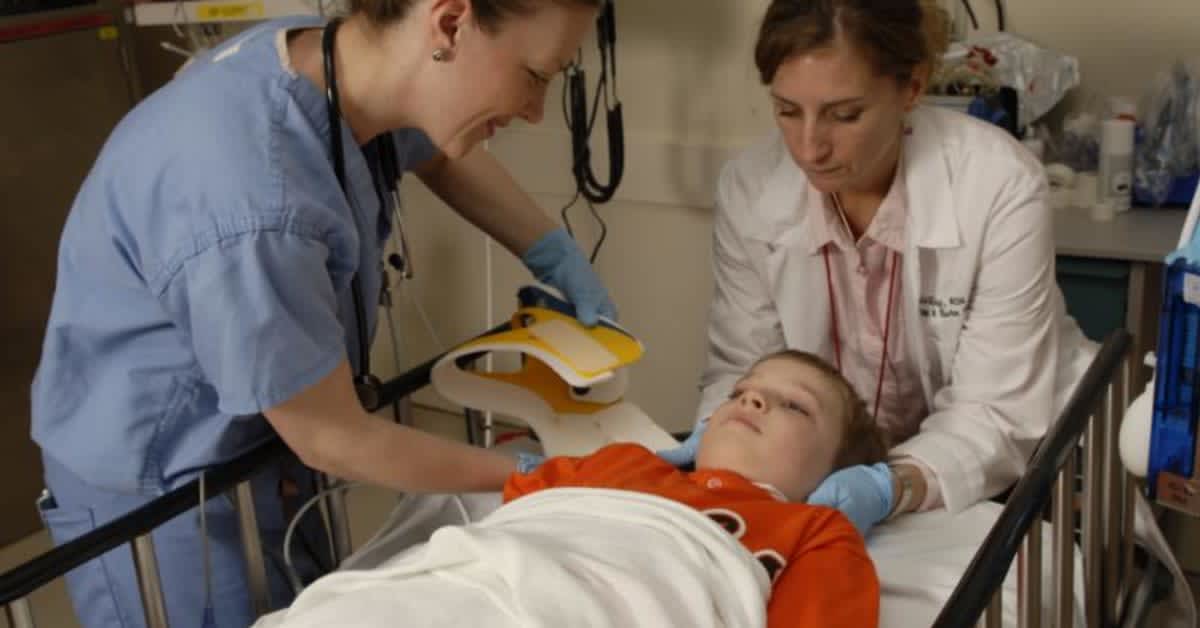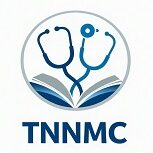Pursuing a Career as an Acute Care Nurse Practitioner in Texas: A Comprehensive Guide
The role of the Acute Care Nurse Practitioner (ACNP) has never been more vital—or more in demand—especially in Texas. With the state’s fast-growing population, ongoing healthcare challenges, and recent legislative efforts aimed at expanding practice for nurse practitioners, now is an excellent time for Registered Nurses (RNs) to consider advancing their career in acute care. Whether you are drawn to the fast-paced environment of trauma units, critical care, or advanced cardiac care, this article will provide you with the essential information you need to make an informed decision about becoming an ACNP in Texas.
1. Introduction: The Role of the ACNP in Texas
Defining the ACNP
An Acute Care Nurse Practitioner is an advanced practice registered nurse (APRN) trained to assess, diagnose, and manage patients with acute, critical, and complex health conditions. Working in settings such as intensive care units (ICUs), emergency departments, and specialized hospital units, ACNPs often collaborate with interdisciplinary teams to provide high-level, evidence-based care. Their responsibilities may include prescribing medications, ordering and interpreting diagnostic tests, and developing comprehensive treatment plans—skills that are crucial in fast-paced acute and critical care settings.
Growing Importance in the Texas Healthcare System
Texas faces unique healthcare challenges, including a large rural population and a high demand for specialized care in rapidly growing urban areas like Houston, Dallas-Fort Worth, Austin, and San Antonio. ACNPs fill a critical gap by offering advanced practice care that helps reduce physician workload, improve patient outcomes, and address healthcare shortages. This is particularly relevant in the wake of the COVID-19 pandemic, which has underscored the value of nurse practitioners in managing acute and complex cases.

2. ACNP Responsibilities and Practice in Texas
Core Responsibilities
- Patient Assessment and Diagnosis: ACNPs perform comprehensive physical exams, analyze patient histories, and interpret diagnostic tests.
- Treatment and Medication Management: They develop and implement treatment plans, prescribe medications, and adjust therapies based on patient response.
- Care Coordination: Collaborating closely with physicians, pharmacists, therapists, and social workers to ensure high-quality, continuous care.
- Patient and Family Education: Educating patients and families on disease processes, recovery, and prevention strategies.
Practice Environment and Restrictions
Texas is currently a restricted practice state for nurse practitioners. This means NPs—including ACNPs—are required to have a delegation agreement or collaborative agreement with a supervising physician to diagnose and prescribe medications. Although these regulations can influence practice autonomy, many health systems have well-established frameworks allowing ACNPs to function effectively within their scope.
Legislative Efforts
In recent years, there have been ongoing legislative efforts aimed at granting Texas nurse practitioners full practice authority or at least reducing some existing restrictions. If enacted, these measures would allow ACNPs to practice independently without direct physician oversight, potentially increasing their ability to serve in underserved areas and expand access to acute care services.
3. Choosing the Right ACNP Program in Texas
3.1 Key Factors to Consider
-
Admission Requirements
- Bachelor of Science in Nursing (BSN)
- Active RN License in Texas
- Competitive GPA (often 3.0 or higher)
- Clinical Experience (some programs require 1-2 years in acute care settings)
- Interviews or Essays may be part of the application process
-
Program Curriculum
- Core Courses: Pathophysiology, Pharmacology, Advanced Physical Assessment
- Specialty Tracks: Adult-Gerontology ACNP, Pediatric ACNP, Dual ACNP-FNP (depending on the institution)
-
Clinical Experience
- Look for programs that offer diverse clinical placements in ICUs, emergency departments, and specialized hospital units.
- Preceptor Support is crucial for hands-on learning and mentorship.
-
Accreditation
- Accreditation Commission for Education in Nursing (ACEN) or
- Commission on Collegiate Nursing Education (CCNE)
Ensures the program meets national standards of quality.
-
Program Length and Format
- Master of Science in Nursing (MSN) vs. Doctor of Nursing Practice (DNP)
- Full-time vs. Part-time options, depending on work-life balance and career goals.
-
NCLEX Pass Rates and Graduation Rates
- While NCLEX pertains to initial RN licensure, it’s still informative to see how well a school prepares its undergraduate nursing students.
- Graduation Rates reflect program quality, student support, and overall success.
-
Online vs. In-Person Programs
- Online Programs: Flexible scheduling, ideal for working RNs or those living far from campus.
- In-Person Programs: Greater networking opportunities, real-time interaction with faculty, and hands-on campus resources.
- Many schools now offer hybrid formats that blend online coursework with occasional on-campus intensives.
3.2 Top ACNP Programs in Texas
Below are some standout ACNP programs in Texas. Always verify tuition and program details on each school’s official website, as costs and curricula can change:
-
The University of Texas Health Science Center at San Antonio (UT Health San Antonio)
- Program Strengths: Known for its strong partnerships with local hospitals, offering robust clinical rotation opportunities in trauma and critical care.
- Tuition (Approximate): $450-$600 per credit (in-state).
- Online Offerings: Some core courses can be completed online, with on-campus labs required for hands-on skills.
- Accreditation: CCNE.
-
Texas Woman’s University (TWU)
- Program Strengths: Flexible scheduling options and a strong reputation in nursing education; the Dallas and Houston campuses offer proximity to major medical centers.
- Tuition (Approximate): $400-$500 per credit (in-state).
- Online Offerings: Many didactic courses are available online, with clinical requirements arranged in collaboration with local health systems.
- Accreditation: CCNE.
-
University of Mary Hardin-Baylor (UMHB)
- Program Strengths: Smaller class sizes, individualized attention, and strong Christian-based mission. Offers both MSN and DNP pathways.
- Tuition (Approximate): $800 per credit.
- Online Offerings: A mix of online and on-campus coursework, giving students flexibility.
- Accreditation: CCNE.
-
New and Emerging Programs
- Baylor University DNP – ACNP Track offers an online DNP pathway with immersive on-campus experiences.
- UT Tyler and UTMB Galveston have also expanded their advanced practice tracks in recent years, providing more options for RNs throughout Texas.
4. MSN vs. DNP: Which Degree Is Best for You?
-
Master of Science in Nursing (MSN)
- Typically takes 2-3 years to complete (full-time).
- Prepares you for advanced clinical roles with a focus on direct patient care.
- Lower overall credit requirement and cost compared to a DNP.
- If you aim to quickly enter the workforce or focus primarily on clinical practice, an MSN might be the right choice.
-
Doctor of Nursing Practice (DNP)
- Typically takes 3-4 years (full-time), though part-time tracks are common.
- Emphasizes clinical leadership, research translation, and healthcare policy.
- Can lead to higher earning potential and expanded opportunities in administration, policy advocacy, and academia.
- Ideal for those who aspire to lead system-level changes, engage in advanced quality improvement projects, or teach at the university level.
5. Financial Considerations
5.1 Tuition and Fees
- MSN Programs: May range from $15,000 to $40,000 total for in-state students, depending on the institution and format.
- DNP Programs: Can range from $25,000 to $60,000 or more, reflecting the additional credit hours and project requirements.
5.2 Financial Aid
- Scholarships and Grants: Many professional organizations (e.g., Texas Nurses Association, American Association of Critical-Care Nurses) offer scholarships.
- Federal and State Loans: Stafford Loans, PLUS Loans, and other state-specific programs.
- Loan Forgiveness Programs: Some hospitals and government agencies offer loan repayment assistance or forgiveness, especially in underserved areas.
5.3 Salary Expectations in Texas
- According to the U.S. Bureau of Labor Statistics (BLS), the median salary for nurse practitioners (including ACNPs) was around $124,000 per year nationally in 2022. In Texas, ACNPs often earn between $110,000 and $130,000, depending on factors such as experience, location, and employer.
- DNP vs. MSN Salary Impact: While having a DNP does not guarantee a dramatically higher salary in all settings, many institutions and healthcare systems do offer salary differentials or leadership positions that can lead to increased earnings over time.
6. Job Outlook and Demand
- The BLS projects a 45% growth in NP roles from 2020 to 2030, much faster than average for all occupations.
- Texas’ booming population and ongoing nursing shortage contribute to a high demand for advanced practice nurses, especially in critical care and acute care specialties.
- Career Paths: ACNPs can work in ICUs, surgical units, emergency departments, hospitalist services, specialty clinics (e.g., cardiology, oncology), and even extend their practice to urgent care centers and telehealth platforms.
7. Current Trends Shaping ACNP Practice
-
Telehealth and Technology
- The pandemic accelerated the adoption of telehealth, enabling ACNPs to monitor and assess patients remotely.
- Emerging technologies such as remote patient monitoring, AI-driven diagnostic tools, and electronic health record (EHR) optimizations continue to shape acute care delivery.
-
Interprofessional Collaboration
- Modern healthcare relies on teams of providers, and ACNPs often coordinate care with physicians, pharmacists, respiratory therapists, social workers, and more.
- Collaborative practice models improve patient outcomes and reduce burnout.
-
Evidence-Based Practice (EBP)
- ACNPs use the latest research to guide clinical decisions, improving quality of care and patient safety.
- Many MSN and DNP programs integrate EBP projects and quality improvement initiatives into their curricula.
8. Conclusion: Why Become an ACNP in Texas?
Choosing to become an Acute Care Nurse Practitioner in Texas offers the opportunity to practice in one of the most diverse and rapidly expanding healthcare landscapes in the country. From treating critically ill patients in high-acuity settings to shaping healthcare policy and innovation, ACNPs have a significant impact on patient outcomes and the broader community. Although Texas is still a restricted practice state, legislative efforts to expand nurse practitioner autonomy are underway, potentially broadening the scope of practice and opening new doors for advanced practice nurses.
If you are an RN looking to take the next step:
- Identify your career goals. Decide whether an MSN or DNP aligns better with your aspirations in clinical practice, leadership, or education.
- Research ACNP programs. Consider accreditation, clinical placement opportunities, program length, and format (online, in-person, or hybrid).
- Plan your finances. Look into scholarships, grants, loan forgiveness programs, and employer-sponsored tuition assistance.
- Stay informed. Keep track of legislative updates, new program offerings, and evolving trends like telehealth and advanced technology in acute care.
With careful planning and a passion for delivering high-quality, evidence-based care to acutely and critically ill patients, you can embark on a rewarding and in-demand career as an ACNP in Texas.
Additional Resources
- Texas Board of Nursing: https://www.bon.texas.gov/
- American Association of Critical-Care Nurses (AACN): https://www.aacn.org/
- Texas Nurses Association (TNA): https://www.texasnurses.org/
- Bureau of Labor Statistics (BLS) – Nurse Practitioners: https://www.bls.gov/oes/current/oes291171.htm
- American Association of Nurse Practitioners (AANP): https://www.aanp.org/
By taking advantage of these resources and staying up-to-date on the latest healthcare developments, you will be well-prepared to advance your nursing career and make a lasting impact on patients in need of specialized acute care.
Author
-

Chief Editor, Tamil Nadu Nurses and Midwives Council (TNNMC) Website and Nursing Journal. Chief Editor is dedicated to promoting the highest standards of nursing by leveraging the power of education and communication. Their editorial approach is rooted in inclusivity, accuracy, and accessibility, aiming to equip nurses and midwives with the tools and insights they need to excel in their careers and improve patient care outcomes.
View all posts


